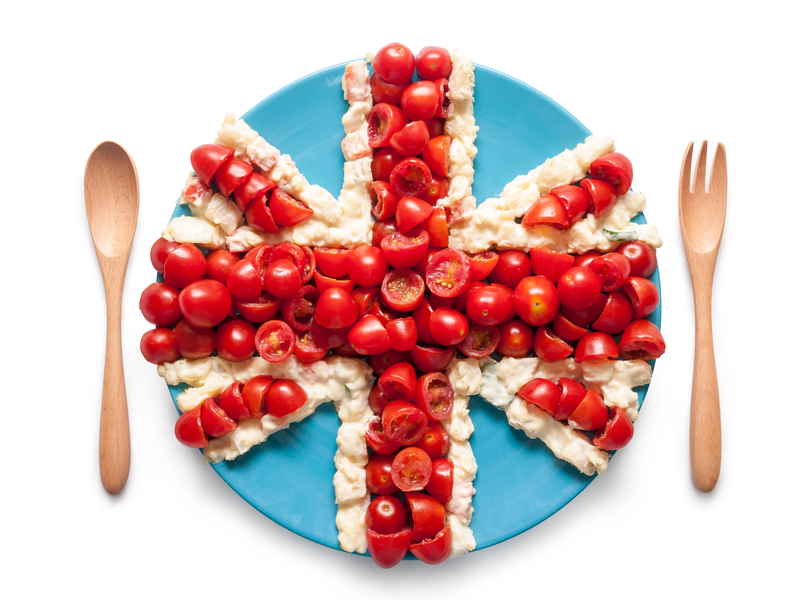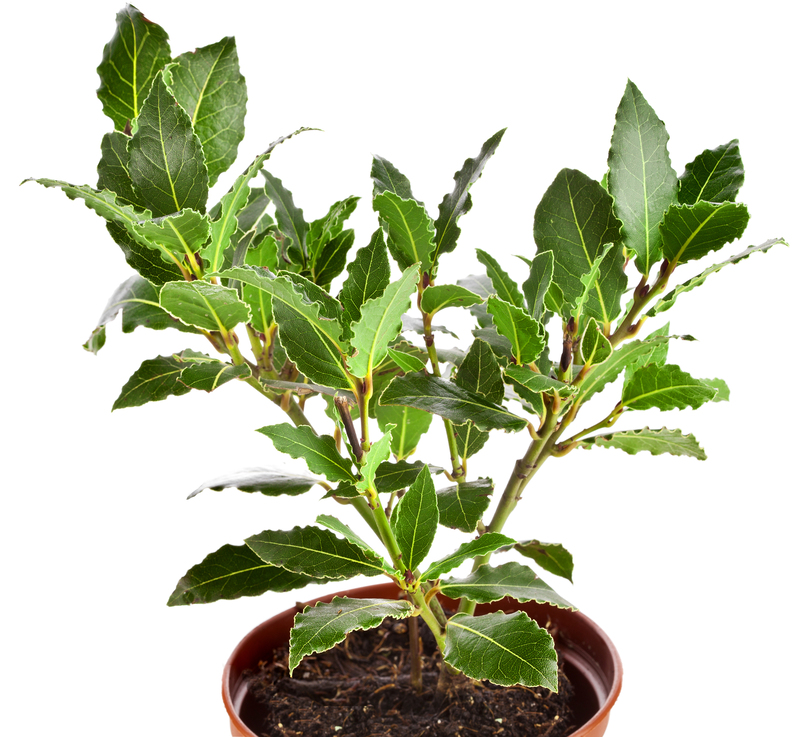Waste Alchemy: Crafting Nutrient-Rich Soil
Posted on 30/09/2025
Waste Alchemy: Crafting Nutrient-Rich Soil
Transforming waste into a valuable resource is more than just a trend--it's essential for sustainable living and a healthier planet. Welcome to the world of waste alchemy, where organic refuse is skillfully converted into nutrient-rich soil. In this guide, you'll discover how simple practices can unlock the hidden potential in everyday waste, revitalizing gardens, farms, and green spaces while reducing landfill pressure and greenhouse gas emissions.

Understanding Waste Alchemy: What Is It?
At its core, waste alchemy is the process of transforming ordinary organic waste into something extraordinary: fertile, nutrient-packed soil. Instead of viewing kitchen scraps, yard trimmings, and biodegradable materials as mere garbage, waste alchemists see them as the raw ingredients for lush, productive earth. This process, grounded in ancient wisdom and modern science, is more than composting--it's a holistic approach to nurturing the land and sustaining ecological cycles.
Why Crafting Nutrient-Rich Soil Matters More Than Ever
- Reduces Landfill Waste: Organic materials account for nearly 30% of what ends up in landfills. Repurposing this waste diverts massive amounts of refuse from crowded dumpsites.
- Improves Soil Health: Soil enriched with organic material improves plant growth, water retention, and carbon sequestration.
- Fights Climate Change: Properly processed organic waste captures atmospheric carbon and helps minimize greenhouse gas emissions like methane.
- Encourages Sustainable Living: Waste alchemy inspires communities and households to adopt circular, eco-friendly habits.
Types of Organic Materials for Crafting Rich Soil
Not every kind of waste is created equal when it comes to soil enrichment. The backbone of effective waste alchemy lies in understanding which items can safely and efficiently enhance your compost or soil-brewing system. Here are the best candidates:
- Vegetable and Fruit Scraps - Apple cores, banana peels, carrot tops, and other kitchen leftovers are composting gold.
- Coffee Grounds and Tea Leaves - These provide nitrogen and can even improve soil texture.
- Eggshells - Crushed eggshells add calcium, benefiting plants like tomatoes and peppers.
- Yard Waste - Grass clippings, leaves, and small branches contribute both carbon (brown) and nitrogen (green).
- Shredded Newspaper and Cardboard - In moderation, these materials add valuable carbon without introducing toxins.
- Manure - Livestock manure, when properly aged, is an excellent nutrient booster. Avoid using pet waste from carnivorous animals.
Remember: Avoid composting meat, dairy, oily foods, and diseased plants, as they can attract pests or contaminate your soil.
The Science Behind Waste Alchemy
Soil creation through waste transformation is based on the principles of decomposition. Microbes, fungi, worms, and a host of other organisms break down complex materials into simpler molecules. The result is humus--a dark, crumbly, and fragrant substance that acts as a natural fertilizer and soil conditioner.
Key Elements of the Process
- Carbon and Nitrogen Balance: An ideal mix is roughly 30:1 parts carbon (browns) to nitrogen (greens). Too much carbon slows decomposition; too much nitrogen produces odors and attracts pests.
- Moisture: Microorganisms need moisture to break down material, but too much water can create anaerobic (oxygen-free) conditions that smell unpleasant.
- Airflow: Oxygen is vital for aerobic decomposition, which is why turning your compost regularly is beneficial.
- Temperature: Active waste alchemy heats up as microbes do their work. Piles reaching 130?F to 160?F (55?C to 70?C) are ideal for killing off weed seeds and pathogens.
How to Begin Your Own Waste Alchemy Journey
Create a Home Composting System
Starting waste alchemy at home is both rewarding and simple. Here's a step-by-step guide to get your own mini-factory of nutrient-rich soil running:
- Choose a Location: Select an easily accessible spot that receives partial sunlight and won't be disturbed by pets.
- Pick Your Container: Compost bins can be purchased or crafted from wood pallets, wire mesh, or even a basic heap in your yard.
- Layer Materials: Start with a layer of coarse materials (twigs, straw), add alternating green (nitrogen) and brown (carbon) waste.
- Maintain the Pile: Water occasionally to keep the consistency of a wrung-out sponge and aerate by turning with a pitchfork every couple of weeks.
- Monitor Progress: Within 2-6 months, your waste should transform into dark, earthy-smelling humus ready for garden use.
Advanced Techniques for Urban and Small-Space Alchemists
- Vermicomposting: Red wiggler worms rapidly process kitchen scraps into "black gold" worm castings--perfect for apartments and indoor spaces.
- Bokashi: This Japanese technique uses inoculated bran to ferment rather than decompose waste, allowing for a wider variety of kitchen scraps, including meat and dairy.
- Trench Composting: Simply bury organic waste directly in garden beds, where it decomposes in place, enriching soil with minimal effort.
Nutrient-Rich Soil: Key Benefits for Plants and Gardens
The fruits of waste alchemy aren't just a cleaner environment--they're healthier, more productive plants, richer harvests, and resilient landscapes. Here's how crafting nutrient-rich soil pays dividends:
- Improved Soil Structure: Humus enhances aeration, drainage, and root penetration, supporting robust plant growth.
- Enhanced Nutrient Availability: Organic matter teems with essential nutrients and trace minerals plants crave.
- Water Retention: Compost-rich soil holds moisture better, protecting roots from drought stress.
- Pest and Disease Resistance: Healthy soil fosters a diverse microbiome, reducing the chances of soil-borne illnesses and pests.
- Eco-Friendly and Cost-Effective: Home-produced compost reduces fertilizer expenses and supports a sustainable, self-sufficient lifestyle.
Waste Alchemy & Sustainable Agriculture
On a larger scale, waste alchemy is revolutionizing agriculture and land management. Commercial growers, urban farms, and community gardens incorporate organic amendments into their soil to:
- Restore Depleted Farmland: Years of monoculture and chemical fertilizers can degrade soil; compost reintroduces life and balance.
- Combat Soil Erosion: Organic matter improves aggregate stability, preventing the loss of precious topsoil.
- Reduce Chemical Dependency: With richer soil, the need for synthetic fertilizers and pesticides diminishes.
- Promote Biodiversity: Composting supports pollinators, beneficial insects, earthworms, and other vital soil life.
Case Study: The Regenerative Farm
Many regenerative farms today practice the alchemy of waste by cycling farm residues, manure, and cover crops back into the earth. The result? Yields increase, pests decrease, and the farmland strengthens its capacity to store carbon--a win-win for food security and climate resiliency.
Common Challenges and How to Overcome Them
- Odors: Bad smells mean too much nitrogen, not enough carbon, or poor aeration. Add dry leaves or shredded newspaper and turn the pile often.
- Pests: Avoid adding meat or dairy; use secure lidded bins if rodents are an issue.
- Slow Composting: Chop materials into smaller pieces, turn frequently, and adjust the moisture.
- Matted or Slimy Texture: Usually too wet or containing too many grass clippings. Mix in more dry materials and aerate.
Advanced Waste Alchemy: From Backyard to Bioreactors
While backyard composting is accessible to all, innovative technologies are propelling waste alchemy to new heights. Industrial-scale composting facilities process tons of organic matter, using controlled temperatures, mechanical aeration, and microbial inoculants for faster turnarounds. Bioreactors and closed-loop agricultural systems recapture nutrients, promote circular economies, and prevent valuable organics from ever leaving the food system.
The Role of Community Initiatives
Neighborhood compost hubs, food scrap drop-off programs, and municipal green waste collection are vital for people without garden space. These collective actions amplify the benefits of waste alchemy, making it possible to turn city-wide waste streams into a green resource for parks, urban farms, and city landscaping projects.
Waste Alchemy: Secrets to Perfect Compost
- Focus on Diversity: Mix various types of green and brown materials for a full spectrum of nutrients.
- Don't Forget the Microbial Helpers: A handful of finished compost or garden soil can "inoculate" new piles with beneficial bacteria and fungi.
- Be Patient: Good things take time--rushing the process or adding shortcuts often leads to subpar results.
- Monitor and Adjust: Use your senses--smell, touch, and sight--to judge what's happening inside your pile and adapt as needed.
- Share the Bounty: Excess compost is a precious resource for neighbors, community gardens, or local tree-planting initiatives.
Frequently Asked Questions About Crafting Nutrient-Rich Soil
Can I compost in winter?
Yes, decomposition slows in cold weather but continues. Insulating your bin with straw and maintaining regular additions of organic waste can keep your alchemical process going year-round.
Are compostable plastics safe in home compost?
Most compostable plastics require high temperatures found only in industrial facilities. Stick to natural, plant-based materials for home composting.
What about weeds and diseased plants?
If your compost cannot reach hot temperatures (above 130?F), avoid adding weeds with seeds and diseased plants, which can survive and re-infect your garden.

The Future of Waste Alchemy
With increasing urbanization and environmental challenges, the art of transforming organic waste into lush, nutrient-dense soil will only grow more vital. Innovations in community-scale composting, smart bins, and digital platforms are bringing waste alchemy to the forefront of sustainable development. Households, businesses, and municipalities are realizing the immense value locked within organic matter--a resource rather than a liability.
Conclusion: Waste Alchemy as a Way of Life
Practicing waste alchemy is more than just an eco-friendly choice--it's a profound way to reconnect with natural cycles, save money, and cultivate thriving gardens or landscapes. By crafting nutrient-rich soil from ordinary waste, you become part of a centuries-old legacy that nourishes not just plants, but communities and the Earth itself. Start your journey today, turn kitchen scraps into black gold, and watch the magic of waste alchemy transform your soil, your harvest, and your world.
Ready to begin your own waste transformation adventure? Gather your scraps, layer your greens and browns, and harvest the living soil that forms the very foundation of tomorrow's gardens. Waste alchemy awaits!

